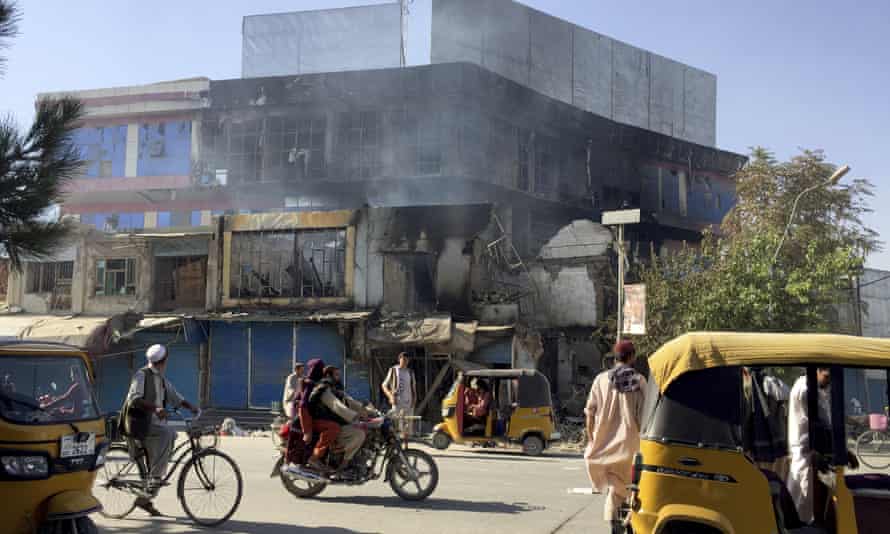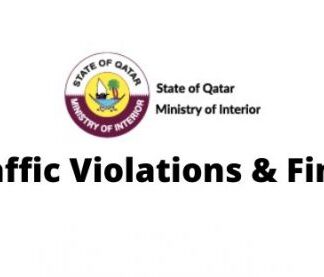Afghanistan ‘spinning out of control’ as Taliban capture two major cities
Issued on: Modified:

Taliban insurgents tightened their grip on Afghanistan on Friday, wresting control of the second- and third-largest cities as Western embassies prepared to send in troops to help evacuate staff from the capital, Kabul.
The capture of Kandahar in the south and Herat in the west after days of clashes is a devastating setback for the government as the Taliban advances turn into a rout.
“The city looks like a front line, a ghost town,” provincial council member Ghulam Habib Hashimi said by telephone from Herat, a city of about 600,000 people near the border with Iran.
“Families have either left or are hiding in their homes.”
A government official said Kandahar, the economic hub of the south, was under Taliban control.
The defeats have fuelled concern that the US-backed government could fall to the insurgents within weeks as international forces complete their withdrawal after 20 years of war.

“The situation has all the hallmarks of a humanitarian catastrophe,” the UN World Food Programme’s Thomson Phiri told a briefing, adding the agency was concerned about a “larger tide of hunger”.
The fighting has also raised fears of a refugee crisis and a rollback of gains in human rights. Some 400,000 civilians have been forced from their homes since the beginning of the year, 250,000 of them since May, a UN official said.
Under the Taliban’s 1996-2001 rule, women could not work, girls were not allowed to attend school, and women had to cover their face and be accompanied by a male relative if they wanted to venture out of their homes. In early July, Taliban fighters ordered nine women to stop working in a bank.
Of Afghanistan‘s major cities, the government still holds Mazar-i-Sharif in the north and Jalalabad, near the Pakistani border in the east, in addition to Kabul.
United Nations Secretary-General Antonio Guterres on Friday called on the Taliban to immediately halt their offensive in Afghanistan, warning that “Afghanistan is spinning out of control”.
“The message from the international community to those on the warpath must be clear: seizing power through military force is a losing proposition. That can only lead to prolonged civil war or to the complete isolation of Afghanistan,” Guterres told reporters.
He also said he was “deeply disturbed by early indications that the Taliban are imposing severe restrictions on human rights in the areas under their control, particularly targeting women and journalists”.
“It is particularly horrifying and heartbreaking to see reports of the hard-won rights of Afghan girls and women being ripped away from them,” Guterres said.
Embassy personnel decisions
With security rapidly deteriorating, the United States planned to send about 3,000 extra troops within 48 hours to help evacuate personnel from the US Embassy in Kabul.
Britain said it would deploy about 600 troops to help its citizens leave. Canada is also sending forces to help evacuate its embassy. Denmark and Norway said they will temporarily close their embassies in Kabul. Sweden said it will reduce its embassy staff, while Germany said it will do so to the “absolute minimum”. The Dutch government said on Friday it may have to close its embassy in Kabul and was working quickly to bring back some of its local Afghan staff in light of the collapsing security situation. Aid groups said they were also getting their people out.

Finland’s foreign minister Pekka Haavisto told a press conference that parliament ruled on Friday the country could “take in up to 130 Afghans who have worked in the service of Finland, the EU and NATO along with their families” because of “the quickly weakening security situation”.
Spain’s foreign ministry announced that the country will evacuate Spanish nationals and the Afghan staffers who have worked “side-by-side” with its diplomatic and military presence in Afghanistan.
An emailed statement on Friday said because of “the advance of Taliban forces in their march towards Kabul”, Spain would begin “the repatriation of the embassy staff, the Spaniards remaining in the country, and those Afghans and their families who have worked side by side with us”.
NATO Secretary General Jens Stoltenberg said the alliance would keep its civilian diplomatic presence in Afghanistan as it tries to support the Afghan government and security forces in the face of the Taliban’s offensive.
“Our aim remains to support the Afghan government and security forces as much as possible. The security of our personnel is paramount. NATO will maintain our diplomatic presence in Kabul, and continue to adjust as necessary,” Stoltenberg said Friday, in a statement following a meeting of NATO envoys.

The UN said Friday it is evaluating the security situation in Afghanistan on “an hour-by-hour basis” and moving some staff to the capital, but is not evacuating anyone from the country.
The world body had “a very light footprint” in some areas taken by the Taliban, UN spokesman Stéphane Dujarric told reporters. It has about 3,000 national staff and about 300 international on the ground in Afghanistan.
“The current situation is that we’re evaluating, literally on an hour-by-hour basis, the security situation both in Kabul and in other locations. There is no evacuation of UN staff going on,” Dujarric said.
British Prime Minister Boris Johnson will hold an emergency response meeting on Friday to discuss Afghanistan, a spokesperson said.
US intelligence assessments concluded this week that the Taliban could isolate Kabul within 30 days and take it over in 90.
Sheltering in parks
Television footage showed families camping out in a Kabul park with little or no shelter, escaping violence elsewhere in the country.
The UN has said a Taliban offensive reaching Kabul would have a “catastrophic impact on civilians”. But there is little hope for a negotiated end to the fighting, with the insurgents apparently set on a military victory.

The Taliban also captured the towns of Lashkar Gah in the south and Qala-e-Naw in the northwest, security officers said. Firuz Koh, capital of central Ghor province, was handed over without a fight, officials said.
The militants, fighting to defeat the government and impose their strict version of Islamic rule, have taken control of 14 of Afghanistan’s 34 provincial capitals since August 6.
After seizing Herat, the insurgents detained veteran commander Mohammad Ismail Khan, an official said, adding that they had promised not to harm him and other captured officials.
A Taliban spokesman confirmed that Khan, who had been leading fighters against the Taliban, was in their custody.
Biden’s decision
The speed of the offensive, as US-led foreign forces prepare to complete their withdrawal by the end of this month, has sparked recriminations over President Joe Biden‘s decision to withdraw US troops, 20 years after they ousted the Taliban following the September 11, 2001, attacks on the United States.
Biden said this week he did not regret his decision, noting Washington has spent more than $1 trillion in America’s longest war and lost thousands of troops.
The loss of Kandahar is a heavy blow to the government. It is the heartland of the Taliban, ethnic Pashtun fighters who emerged in 1994 amid the chaos of civil war to sweep through most of the rest of the country over the next two years.
US Secretary of State Antony Blinken and Defense Secretary Lloyd Austin spoke to Afghan President Ashraf Ghani on Thursday and told him the United States remained “invested” in Afghanistan’s security.
But at home, criticism of Biden’s policy has been mounting.
The Republican leader in the US Senate, Mitch McConnell, said the exit strategy was sending the United States “hurtling toward an even worse sequel to the humiliating fall of Saigon in 1975”, and urged Biden to commit to providing more support to Afghan forces.
British Defence Secretary Ben Wallace said Afghanistan was spiralling into a failed state and civil war in which groups such as al Qaeda would thrive and likely pose a threat to the West again.
(FRANCE 24 with REUTERS, AP, AFP)






























